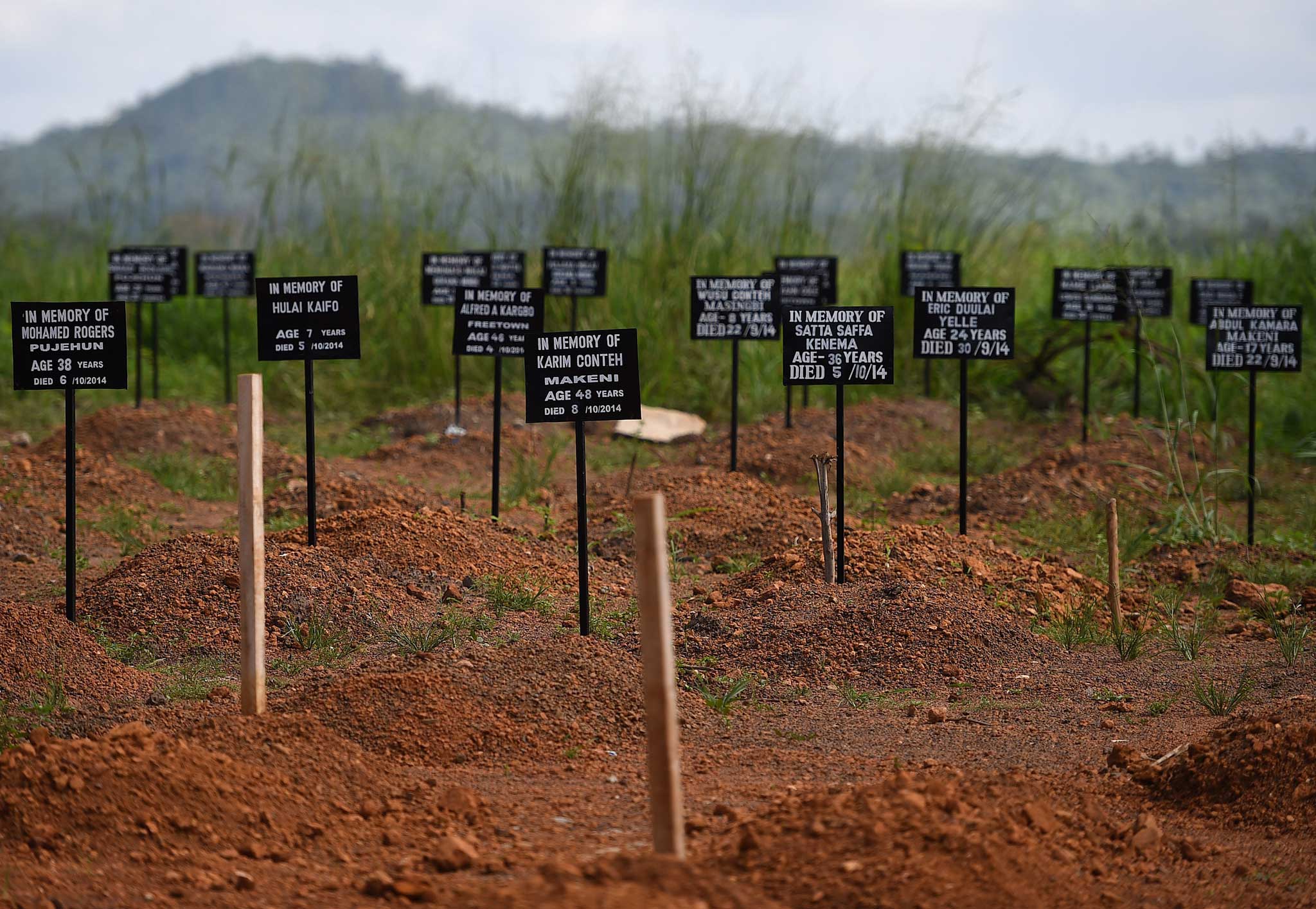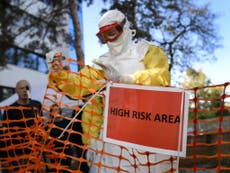Fighting Ebola: When I'm home, I'll be able to touch people again - it's something you miss here
I feel a sense of relief that we were able to prevent the worst

This week I’ll be taking the boat to the airport to leave Sierra Leone, three months to the day since I arrived.
I remember the apprehension I felt when I first came in on that boat, mainly at the enormity of the task and the scale of the crisis.
In October last year we were preparing ourselves for the possibility that 1.4 million people would be infected with Ebola by the end of the year if we didn’t massively step up our efforts.
As of 25 January WHO figures show 21,724 reported cases of Ebola in the outbreak, with 8,641 deaths and the graphs finally seem to be flattening out, showing fewer cases per day. It’s still too many lives needlessly lost, but thankfully not our worst case scenario.
At last, districts in Sierra Leone are crossing the ‘Ebola free’ threshold, having passed 42 days without a new case. While we can’t be complacent, we can see that it is possible to effectively stop the spread of this appalling disease, and we know what it takes to do it.
I feel a sense of relief that we were able to prevent the worst and our optimism albeit small is allowed to grow a little every day, as the number of cases falls.
So many people have made an extraordinary effort to get us to this point: the local health workers who selflessly stepped up to care for the sick and dying, 221 of whom here in Sierra Leone lost their lives to Ebola; the brave men and women who volunteered to join burial teams and dig graves, every day facing the strain of grieving families; and the people across the UK who generously donated to CAFOD and the Disasters and Emergency Committee (DEC) appeals
In some ways, I find it hard to reflect on my time here, because I found, like so many others, the only way to deal with things was to roll up my sleeves and get on with the job. There were moments when despite that, the gravity and terrible sadness of what we were doing crept into some of the essential practical tasks that we needed to carry out.
I remember my visit to one of our grave digging teams to learn how to plot cemeteries, I was keen to see how we could map out the space as effectively as possible.
Inspecting the strings and sticks criss-crossing the field, I scribbled notes about dimensions and time taken to dig six feet into the stony ground. As I asked why some rectangles were bigger than others, I felt a terrible pang as I realised that I was standing on a patch of grass that would soon become a child’s grave, and that there were twenty more such spaces stretched out in front of me.
When inspecting grave markers to check for vital information and legibility of the handwriting, and taking a picture for the record, I paused and really registered what I was taking a photo of - the grave of Morlai - a baby girl who had died last October aged eleven months. When I return home, I will be able to touch people again – it’s something you miss here: no handshakes, no hugs, and no squeezes of affection that go such a long way to make you feel connected.
It’s a gradual realisation that something is missing from your life that has given me a glimpse of the isolation that Ebola has imposed on people here.
I’m also a little nervous about how people will treat me when I return home. Even though the work that we have been doing is low risk, some friends in the UK have requested that we don’t meet for three weeks when I’m back. I know there is no need for a quarantine period but I understand they’re afraid and I don’t want to make them feel uncomfortable.
Again it’s a small insight into the rejection and stigmatisation that Ebola survivors, health and response workers have faced here, we often hear stories of people being thrown out of their homes and ostracised by their communities, and even families.
We know for sure that Sierra Leone and the other Ebola affected countries in West Africa need support to rebuild their lives, jobs and health care systems. Reaching zero new cases of this appalling disease isn’t enough, the work of development extends to tackling extreme poverty that enabled the Ebola virus to ravage this beautiful country.
The international community need to learn lessons for the future from this epidemic, and ensure that national public health systems fragile before Ebola hit, and now decimated by the disease, urgently receive investment and training of health professionals, so that they will be better prepared to tackle future outbreaks.
Catherine Mahony is CAFOD’s Emergency Response Coordinator for West Africa



Join our commenting forum
Join thought-provoking conversations, follow other Independent readers and see their replies